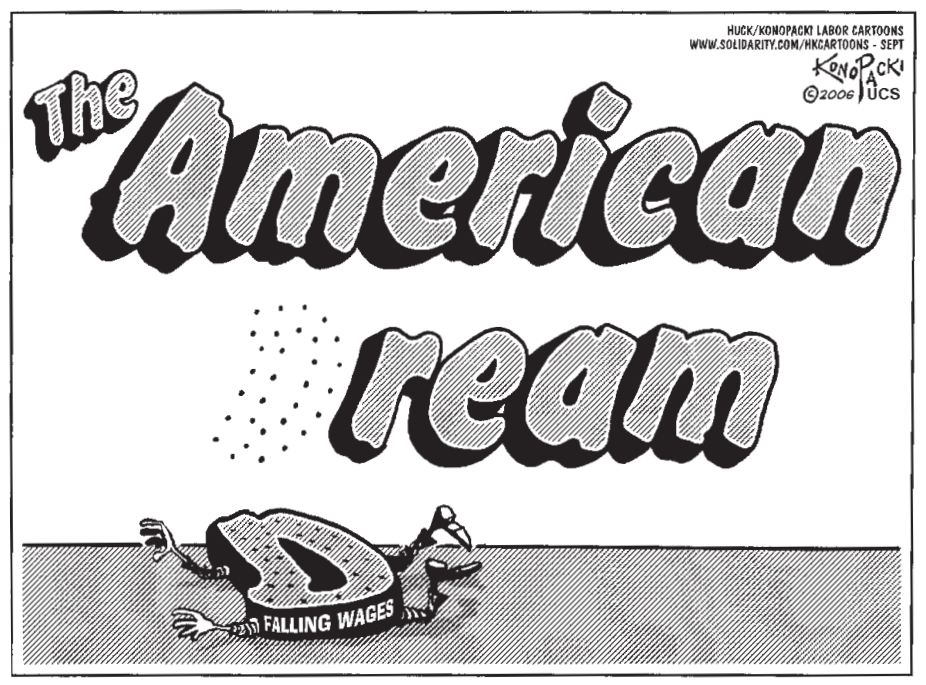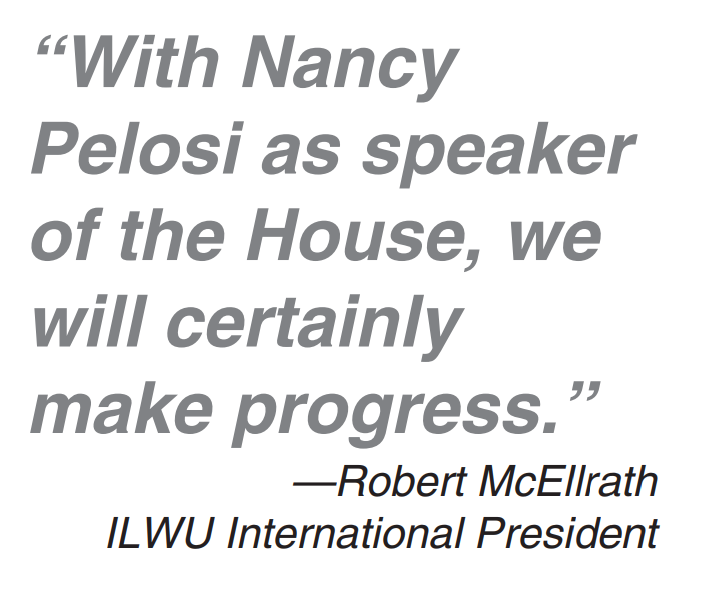For the last 12 years, Congressional Democrats have been stuck in the political wilderness as the minority party. The Republicans marched in lockstep with George W. Bush and shut out the Democrats from offering an alternative agenda on the floor of the House of Representatives. The 2006 election in which the Democrats took back the House and Senate was a repudiation of Bush’s and the lockstep Republican Congress’ agenda.
Now it is time for Speaker Pelosi and the Democratic Congress to take the initiative to fundamentally change the direction of the country. Pelosi has vowed to pass six major legislative items in the first 100 hours that Congress is in session. These legislative initiatives include an increase in the minimum wage, ethics reform, Medicare prescription drug reform, energy policy reform, higher education affordability and implementation of the 9-11 Commission Recommendations. It is imperative that Speaker Pelosi is successful for two reasons: these reforms are meaningful to the American people and success will provide momentum for other issues including labor law reform and health care reform.
Minimum Wage
Pelosi has vowed to increase the minimum wage from $5.15 an hour to $7.25 an hour. A minimum wage increase would raise the wages of millions of workers. An estimated 14.9 million workers (11 percent of the workforce) would receive an increase in their hourly wage rate if the minimum wage were raised according to the Economic Policy Institute. Since 1997 (the last time the minimum wage was increased) the purchasing power of the minimum wage has deteriorated by 20 percent. After adjusting for inflation, the value of the minimum wage is at its lowest level since 1955.
Workers need an increase in the minimum wage, but they also need access to affordable goods and services. Most workers employed at or near the minimum wage, for example, are not offered or cannot afford health insurance from their employer, leaving them with a high probability of being uninsured. Most do not have access to paid sick leave when they or their children become ill. Further, many cannot afford market rates for basic quality child care. Minimum wage workers need health insurance for themselves and their families, affordable, quality child care, and access to paid leave, along with a raise in the minimum wage.
Bush recently expressed support for the minimum wage provided the increase is coupled with a tax cut and regulatory relief for his friends in businesses. Congress should answer with a big “NO.” The most vulnerable workers in America desperately need a raise. It is an insult to pare their well-deserved raise with another give-away to Bush’s business friends.
Ethics Reform
Having campaigned strongly on the issue of Congressional ethics, the Democratic leadership in both the House and Senate promised to pass ethics related legislation. Both the House and Senate proposals have included stricter controls on members of Congress’ interaction with lobbyists, a ban on travel, meals or gifts paid for by lobbyists, and the end to the practice of anonymous earmarking. These reforms are necessary given the scandals surrounding high-priced lobbyist Jack Abramoff’s bribes to Republican members of Congress.

Implement 9-11 Commission Recommendations
Congressional Democrats want 100 percent of the cargo bound for the U.S. in ships and planes to be screened for dangerous materials. We can expect that the implementing legislation will include a proposal by Rep. Ed Markey (D-MA) to require that all cargo entering the U.S. be screened for radiation or nuclear devices. Additionally, Pelosi argues that police, firefighters and other emergency personnel still don’t have enough equipment to communicate with each other during disasters. The Democratic Congress will likely provide additional funding for homeland security as well as more oversight of what exactly the Bush administration is doing to protect the country from terrorist attacks.
Health Care
In the first 100 hours, the House of Representatives will give authority to the federal government to directly negotiate prescription drug prices with their manufacturers. Under the 2003 Medicare prescription-drug law, such direct negotiation is specifically outlawed—a boon to the drug companies, who feared such negotiations would cut into their huge profit margins. The pharmaceutical companies are one of the largest industries funding the Republican campaigns and these companies have been rewarded handsomely during the Republican Congress’ reign.
Student Loans
In the first 100 hours, Democrats pledge to “slash interest rates in half for federal student loans, to 3.4 percent for students and 4.25 percent for parents, saving the average student borrower $5,600. Students and parents are struggling to pay for college. Tuition costs are rising far faster than inflation while real wages have been stagnant. The average cost of tuition at a public college has increased 42 percent since Bush took office, but median household income has fallen 2 percent. As a consequence of the high cost of education, working families are foregoing dreams of a higher education and career of their choice.
Energy policy The Democrats first 100 hours plan aims to reduce American dependence on oil. The opening move is to roll back the multi-billion dollar subsidies to Big Oil and reinvest them into the clean, renewable energy technologies that will help America break its addiction to oil and save American families money at the pump.
Tackling the oil companies thirst for higher and higher profits is vitally important to the American people. Half of low income households could not afford last year’s heating bills. Gas prices have skyrocketed – the cost of regular gasoline grew by 58 percent from 2000 to 2005.
In talking about the first 100 hours, Speaker Pelosi talks of “draining the swamp.” Common sense policies such as allowing the government to negotiate lower costs for prescription drugs, raising the minimum wage and rescinding tax cuts for price-gouging oil companies were not accomplished during the Republican Congress’ reign. The Republican Congress was so tied into big money lobbyists and rich business interests that they ignored the pleas from the American people for common sense policies. They deserved to lose the election.
The first 100 hours is not the entire agenda of the Democratic Congress. It is just the beginning. We expect the House will overwhelmingly pass the Employee Free Choice Act to give workers a real chance to organize and collectively bargain for their wages and benefits. We expect that the debate over health care will shift to universal, quality, affordable coverage for every American worker. And we should expect that the Congress debate ways in which the American economy can be revitalized and high paying jobs be created for the American people. We must demand that Congressional Democrats lead the way in ending the war in Iraq and concentrate instead on issues of social justice both here and abroad.
This is not going to be easy. We still have an anti-worker President in office. We have a Senate that is virtually tied and it is difficult to get anything passed in that body with less than 60 votes given their rules allowing filibusters. The margin that Speaker Pelosi has in the House is narrow and there are significant numbers of conservative Democrats that do not want change. But still, today we have hope. We can change America.

